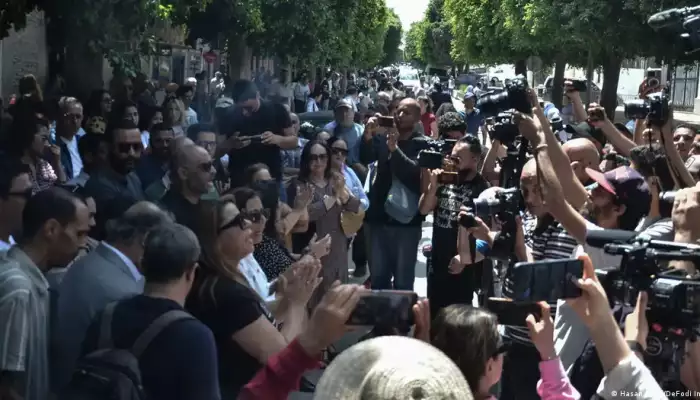
A Tunisian court sentenced two journalists to one in year in prison on Wednesday, on charges of publishing false news that harms public security.
Broadcaster Borhen Bssais and political commentator both journalists with IFM radio, were arrested in mid-May under Decree 54, a law that was signed into effect by President Kais Saied in September 2022.
It punishes the use of communications networks to "produce, spread (or) disseminate... false news" with the aim of "harming" and "defaming" others.
What were the journalists convicted of?
Bssais and Zeghidi received six months for "using communications networks to produce and spread false news and rumors," Tunis court spokesperson Mohamed Zitouna said.
An additional six months was handed down for "spreading news that includes false information with the aim of defaming others, tarnishing their reputation, and causing them material and moral harm."
During his trial session, Bsaiss said: "I am a program presenter who presents all issues, and what I did was journalistic work."
Meanwhile, in his defense Zghidi said: "I did not make a mistake. My work requires analyzing the political and economic situation... and I bear my responsibility."
Tunisia has imprisoned a total of six journalists since Decree 54 came into force, including Zghidi and Bsaiss, according to the journalists syndicate, the country's main union for reporters.
In May, police arrested 10 people, including journalists, lawyers and officials of civil society groups. The arrests drew international backlash, after reactions from the UN, the EU, the United States and France.
The National Union of Tunisian Journalists last week condemned Bssais and Zeghidi's arrests, saying they were "a violation of the right to freedom of expression, press and publication".